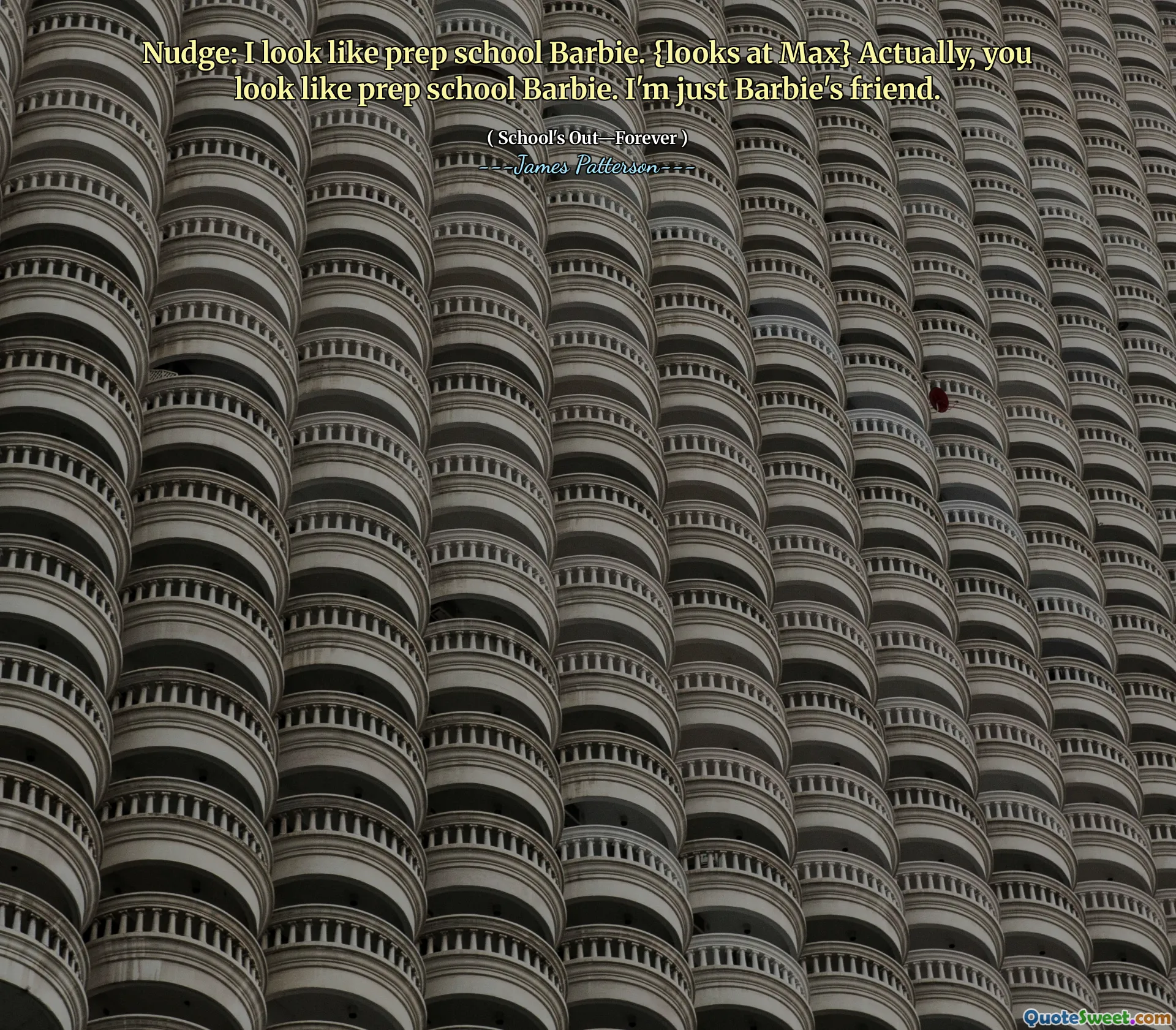
Nudge: I look like prep school Barbie. {looks at Max} Actually, you look like prep school Barbie. I'm just Barbie's friend.
In "School's Out—Forever" by James Patterson, a humorous exchange highlights the characters' self-perceptions and societal expectations. One character jokingly compares themselves to Barbie while teasing another about looking like the quintessential prep school version of the iconic doll. This playful interaction reflects a deeper commentary on identity and the pressures that come with fitting into certain social molds. The banter serves as a lighthearted moment amidst the narrative, showcasing the characters' personalities and their friendship. The reference to Barbie symbolizes how people often assess themselves and others based on appearances, hinting at themes of self-image and acceptance in the story's broader context.
In "School's Out—Forever," a humorous exchange reveals characters' self-perceptions and societal expectations. One character compares themselves to Barbie, teasing another about looking like the prep school version. This playful dynamic highlights deeper themes of identity and social pressure.
This banter offers a light moment in the narrative, showcasing the characters' personalities and friendship. The Barbie reference underscores how people evaluate appearances and points to self-image and acceptance in the broader story context.






